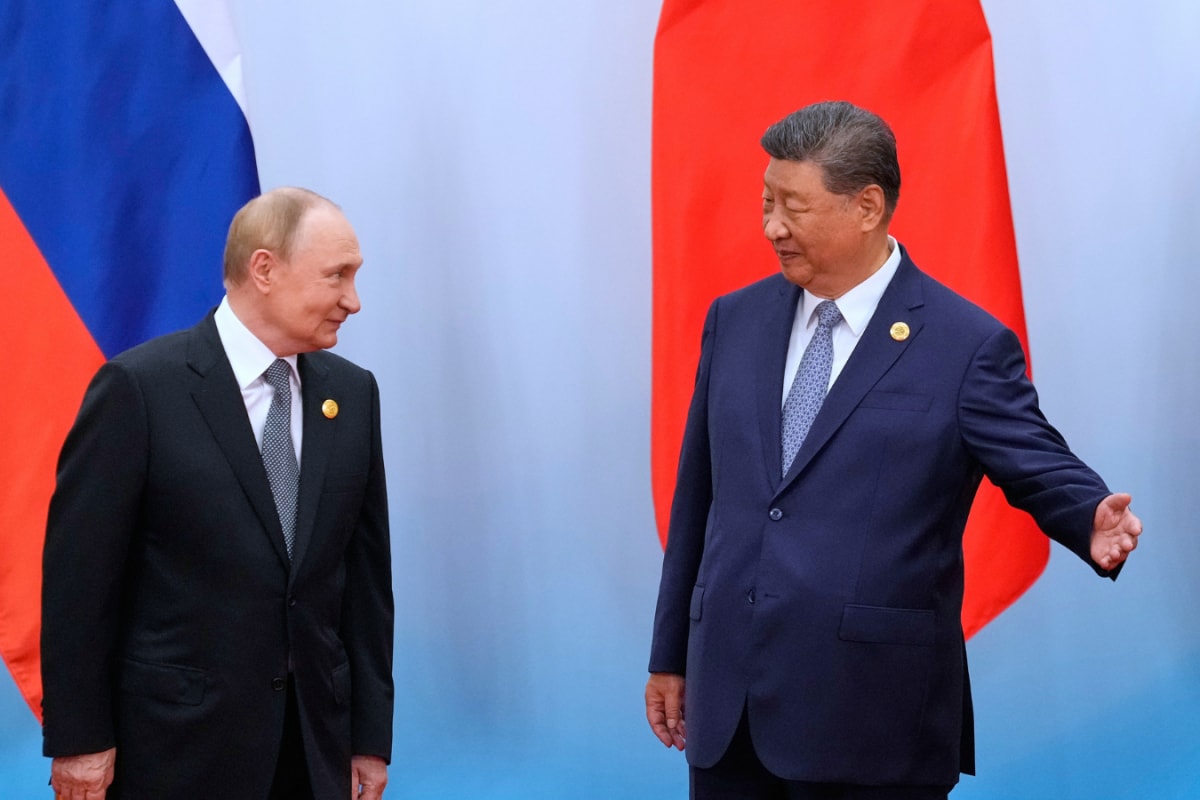Science
Xi and Putin Discuss Living to 150: Are Organ Transplants the Key?

A recent exchange between Chinese President Xi Jinping and Russian President Vladimir Putin has sparked significant interest after they discussed the possibility of extending human life to 150 years through organ transplants. This conversation occurred during a military parade in Beijing, marking the 80th anniversary of Japan’s surrender in World War II, and was captured by microphones, quickly going viral.
As they approached a viewing platform, Xi remarked, “Now people in their 70s are still young.” The Russian interpreter translated, noting that in the past, few lived beyond 70, but today, those at 70 are “still a child.” Putin added that with advancements in biotechnology, human organs could be continuously transplanted, allowing people to live younger and potentially achieve immortality. Xi followed up with the prediction that humans may reach 150 years of age within this century. While their comments seemed casual, they raise critical questions about the current state of science in relation to longevity.
Current Scientific Understanding of Organ Transplants
Organ transplants have undeniably improved life expectancy for many individuals suffering from end-stage organ failure. However, they are not a solution for extreme longevity. According to the BBC, the lifespan of transplanted organs is limited. For instance, a kidney from a living donor typically lasts between 20 to 25 years, while a heart usually functions for about 15 years.
The necessity of lifelong immunosuppressant medication to prevent organ rejection introduces additional health risks, including increased vulnerability to infections. While some patients have lived for decades post-transplant, these outcomes are exceptions rather than the rule.
Theoretical Limits of Organ Replacement
The idea of repeatedly replacing failing organs as a means to extend life remains largely theoretical. Professor Neil Mabbott from the University of Edinburgh pointed out that multiple transplant surgeries, especially in older patients, would place immense stress on the body. Aging affects not only individual organs but also the immune system and overall recovery capabilities. Even if specific organs can be replaced, the aging process continues elsewhere in the body.
Researchers are exploring alternatives to traditional organ transplants, such as xenotransplantation, which involves transplanting genetically modified animal organs into humans. This field aims to overcome one of the primary hurdles in transplant medicine: organ rejection. Scientists have begun using CRISPR technology to modify pig genes, making them potentially compatible for human use. However, this research is still in its early stages, with only a few xenotransplants having been attempted, and the results have not demonstrated long-term viability.
Furthermore, scientists are investigating the potential for growing human tissues using stem cells. In 2020, researchers at University College London successfully rebuilt a human thymus using stem cells, though no fully functional transplant-ready organ has yet been developed for adult patients. While these advancements show promise, they remain largely experimental.
Broader Context of Longevity Research
The conversation between Xi and Putin touches on a larger discussion regarding longevity beyond organ transplants. Various interventions, such as plasma transfusions and cellular rejuvenation, are also being explored. For instance, entrepreneur Bryan Johnson attempted to reverse his biological age by transfusing himself with plasma from his teenage son but later abandoned the practice after observing no measurable benefits.
Despite the rising interest in anti-aging techniques, experts emphasize that most current research focuses on treating diseases rather than extending human lifespan beyond natural limits. Dr. James Markmann, President of the American Society of Transplant Surgeons Executive Council, reiterated that there is no scientific evidence supporting the notion that organ transplants can lead to immortality or significantly extend lifespan.
Conclusion: The Reality of Longevity
While Xi and Putin’s remarks may reflect genuine curiosity about the future of biotechnology, the scientific consensus remains that organ transplants do not offer a viable avenue for extreme longevity. Historical records indicate that the oldest confirmed human, Jeanne Calment, lived to be 122 years old. Many scientists believe that 125 years is close to the upper limit of natural human lifespan.
As research continues, it is essential to distinguish between speculative discussions and verified scientific advancements. The quest for longer, healthier lives is ongoing, but, for now, organ transplantation is primarily a life-saving intervention rather than a means to radically alter the biological limits of human life.
-

 World5 months ago
World5 months agoSBI Announces QIP Floor Price at ₹811.05 Per Share
-

 Lifestyle5 months ago
Lifestyle5 months agoCept Unveils ₹3.1 Crore Urban Mobility Plan for Sustainable Growth
-

 Science4 months ago
Science4 months agoNew Blood Group Discovered in South Indian Woman at Rotary Centre
-

 World5 months ago
World5 months agoTorrential Rains Cause Flash Flooding in New York and New Jersey
-

 Top Stories5 months ago
Top Stories5 months agoKonkani Cultural Organisation to Host Pearl Jubilee in Abu Dhabi
-

 Sports4 months ago
Sports4 months agoBroad Advocates for Bowling Change Ahead of Final Test Against India
-

 Science5 months ago
Science5 months agoNothing Headphone 1 Review: A Bold Contender in Audio Design
-

 Top Stories5 months ago
Top Stories5 months agoAir India Crash Investigation Highlights Boeing Fuel Switch Concerns
-

 Business5 months ago
Business5 months agoIndian Stock Market Rebounds: Sensex and Nifty Rise After Four-Day Decline
-

 Sports4 months ago
Sports4 months agoCristian Totti Retires at 19: Pressure of Fame Takes Toll
-

 Politics5 months ago
Politics5 months agoAbandoned Doberman Finds New Home After Journey to Prague
-

 Top Stories5 months ago
Top Stories5 months agoPatna Bank Manager Abhishek Varun Found Dead in Well









